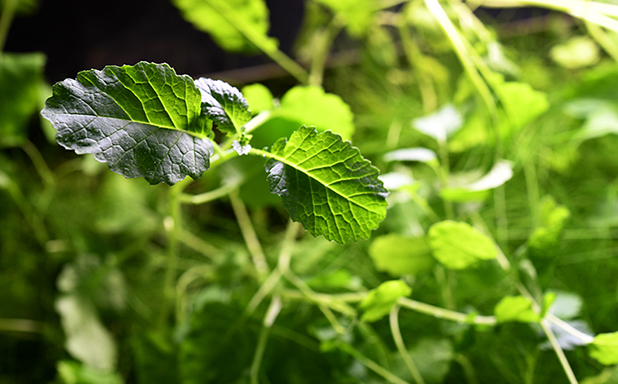Green-fingered scientists are asking their fellow gardeners to help them trial a clever new scheme which uses specially chosen plants to ‘mine’ metals from contaminated soil.
Developed by Dr Lorna Anguilano, a senior research fellow at Brunel University London’s Experimental Technique Centre, Lorna’s Seeds is planned as a new end-to-end service that helps gardeners and horticulturalists clean their soil of heavy metals without the need of invasive chemicals.
First, gardeners are supplied with a packet of seeds which are planted and then harvested after six weeks. The grown plants, as well as a sample of the soil before and after the planting, are returned to the scientists and analysed, revealing what contamination is present in the soil. Optimised seed mixes are then developed, with the plants specially selected to naturally draw the metals from the soil.
“The idea originally comes from mining – the harvesting of nickel from plants was patented years ago – but it’s since been studied for many different plants and lots of different metals. It’s relatively old technology,” said Dr Anguilano.
“Lorna’s Seeds is really a variation on the theme, but we want to help soil regeneration in an urban environment. So, we want to see what sort of contamination we have in our living environments – in our gardens and allotments – and then develop an assortment of seeds that can help remove the metals present in the soil.”

The plants are ready to harvest after six weeks
Whilst the vast majority of gardens come well within the safe limits of metals, some can be highly contaminated due a site’s previous use – for instance, as a factory or foundry. Such contamination is usually dealt with using chemical cleaning, or more simply, by dumping new soil over the top of it.
“In reality, all plants draw up some metals, so if you’re producing edible food – maybe coriander or spinach or whatever it is – it is better and safer to have cleaned up the soil before planting your food,” said Dr Anguilano.
With initial trials already completed at Brunel, Dr Anguilano and her team are now seeking 200 gardeners to help them continue developing the effectiveness of the seeds. Funded by the university, volunteers will be asked to plant their seeds and then return soil samples and their clippings after six weeks. Dr Anguilano hopes the new trial with help further optimise the plant mix, enhancing recovery of the metals in the soil.
The seed packets contain a mixture of grasses and small flowering plants – a mix that has so far been developed through extensive laboratory testing and a small local trial – and it is hoped the new trial will help the researchers perfect the mix further.
“The plants our first packs produced weren’t particularly pleasing to look at as they contained lots of mustard, and mustard gets too big. The rest of the plants tend to be grass-looking, so for instance one of them is a type of grass commonly found on golf courses,” said Dr Anguilano.
“For this new trial though, we’ve also added flowering plants. They’re very small flowers, but depending on the type of metals in the soil, the flowers change colour! So, it acts like a visual assessment for what’s underneath. In one garden the flower might be a deep purple, but it another it’ll be a pale blue.”

Metals commonly found in soil include lead, zinc, titanium, manganese and copper, as well as trace amounts of rarer, more valuable metals. It’s hoped the returned, metal-rich plants can be reused in in industry, for instance as catalysts.
“We only ever need very small amounts of rare metals, but when we do need them, they tend to be mined under terrible conditions. If we can ‘mine’ them from our gardens, it’ll be far more sustainable,” said Dr Anguilano.
To sign up for the trial, please visit Citizen science urban mining: decontamination of soils
Reported by:
Tim Pilgrim,
Media Relations
+44 (0)1895 268965
tim.pilgrim@brunel.ac.uk